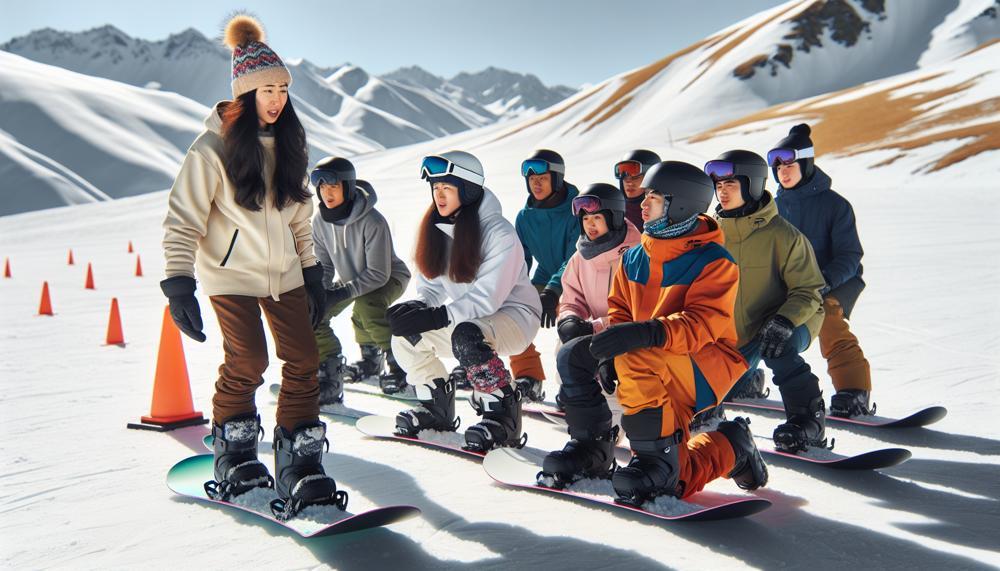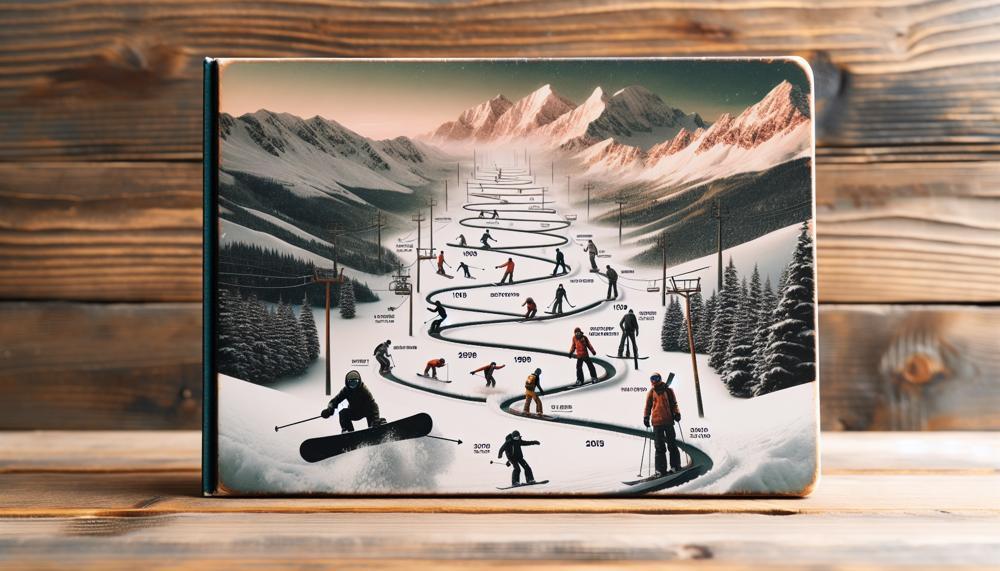Are you ready to conquer the snowy slopes and experience the exhilaration of snowboarding? The thought of learning a new sport can be daunting, especially one that involves strapping your feet onto a board and hurtling down a mountain. With the right mindset and preparation, you’ll be carving up the powder like a pro in no time.
In this blog post, we’ll delve into all things snowboarding – from the basics of equipment to tips for mastering your first turns.
So, how many days does it take to learn to snowboard?
There is no set amount of time it takes to learn to snowboard. Some people learn in a day or two, while others may take weeks. The average time is around three to five days.
So grab your board, bundle up in your warmest gear, and let’s embark on an exciting journey into the world of snowboarding.
It Depends On:
Contents
The duration of learning how to snowboard can vary, depending on a variety of factors such as physical fitness, previous experience with board sports, age, quality of instruction, weather and snow conditions, and fear and mental barriers.
These elements can either accelerate or decelerate the learning process and are crucial to consider for those who aspire to master the art of snowboarding.
Below is a summary table depicting these factors and their impact on the learning journey.
| Factor | Impact on Learning Process |
| Physical fitness and coordination | Can enhance learning speed and ease |
| Previous experience with board sports | Can serve as a foundation for acquiring snowboarding skills |
| Age | Younger individuals may learn faster |
| Quality of instruction | Skilled and experienced instructors can expedite the learning process |
| Weather and snow conditions | Ideal conditions can facilitate the learning process |
| Fear and mental barriers | Can impede the learning process |
It is crucial to note that these factors do not dictate a specific timeline for mastering snowboarding. The learning journey of each individual may differ, depending on their unique circumstances.
But Also:

Learning how to snowboard not only depends on the number of days you spend on the slopes, but also on several other factors.
These factors, such as physical fitness, prior experience in other sports, age and flexibility, equipment and gear, weather conditions, and quality of instruction, can significantly impact the time it takes for an individual to become a skilled snowboarder.
Physical Fitness and Prior Experience in Other Sports:
As mentioned earlier, physical fitness is crucial for mastering the art of snowboarding. Individuals who are already physically fit or have experience in other board sports like skateboarding, surfing, or skiing may have an advantage when learning how to snowboard.
This is because they have already developed the necessary strength, balance, and coordination required for snowboarding.
Age and Flexibility:
Age can also play a significant role in how long it takes to learn how to snowboard. Younger individuals tend to be more flexible, making it easier for them to learn the necessary body movements.
In contrast, older individuals may take longer to develop the required flexibility and coordination for this sport.
Equipment and Gear:
Having the right equipment and gear is crucial for efficient learning. Using a well-fitted snowboard, boots, and bindings can make a significant difference in how quickly someone learns to balance on the board and perform different techniques.
Additionally, suitable clothing and protective gear can increase confidence levels and reduce the fear of falling, ultimately speeding up the learning process.
Weather Conditions:
Weather conditions can greatly impact the time it takes to learn how to snowboard. Learning in ideal weather conditions like calm winds and moderate temperatures can help beginners focus on their movements without distractions.
On the other hand, harsh weather conditions like strong winds or extreme cold can make it challenging for beginners to control their board and may prolong the learning process.
Quality of Instruction:
The quality of instruction can significantly affect the time it takes to learn how to snowboard. A skilled and experienced instructor can provide valuable tips and techniques that can accelerate the learning process.
In contrast, a poor instructor or trying to learn on your own without any guidance can lead to developing bad habits and slower progress.
By considering these factors and taking necessary steps to improve in each area, one can accelerate their progress and become a confident and skilled snowboarder in no time.
And Let’s Not Forget:
And let’s not forget to take into account various factors such as physical fitness, experience with other boardsports, the type of terrain being ridden, and the quality of instruction when learning how to snowboard.
These factors can have a significant impact on the time it takes for someone to become proficient at the sport.
| Factors to Consider | Impact on Time to Learn |
| Physical Fitness | Influences balance, coordination, and strength required for snowboarding. |
| Prior Experience with Other Boardsports | Can make it easier to pick up snowboarding due to familiarity with balancing on a board. |
| Type of Terrain Being Ridden | Begins on gentle slopes and progresses to more challenging terrain, which can affect the learning curve. |
| Quality of Instruction | Certified instructors can provide proper techniques and personalized feedback, leading to faster progress. |
| Age and Flexibility | Younger individuals may have an easier time learning due to their flexibility and quick learning abilities, while older individuals may take longer to adapt. |
| Equipment and Gear | The right equipment and gear can improve a beginner’s learning experience and help them progress faster. |
| Weather Conditions | Harsh weather or poor snow conditions can make it more challenging for beginners to learn. |
Ultimately, finding the perfect balance between these factors is crucial when learning how to snowboard. A beginner should focus on improving their physical fitness, seek out quality instruction from certified instructors, and select suitable terrain and equipment.
By taking these factors into consideration, it is possible to have a safe and enjoyable experience while learning how to snowboard.
Conclusion
In conclusion, mastering the art of snowboarding is a thrilling and fulfilling endeavor that requires commitment, perseverance, and a positive mindset.
The duration of learning may vary depending on individual factors such as physical fitness, previous experience with board sports, age, and quality of instruction. However, by focusing on improving in each aspect and taking necessary steps to progress, you can accelerate your learning journey.
Be patient with yourself and embrace the challenges as you develop both physical and mental skills unique to this sport.






